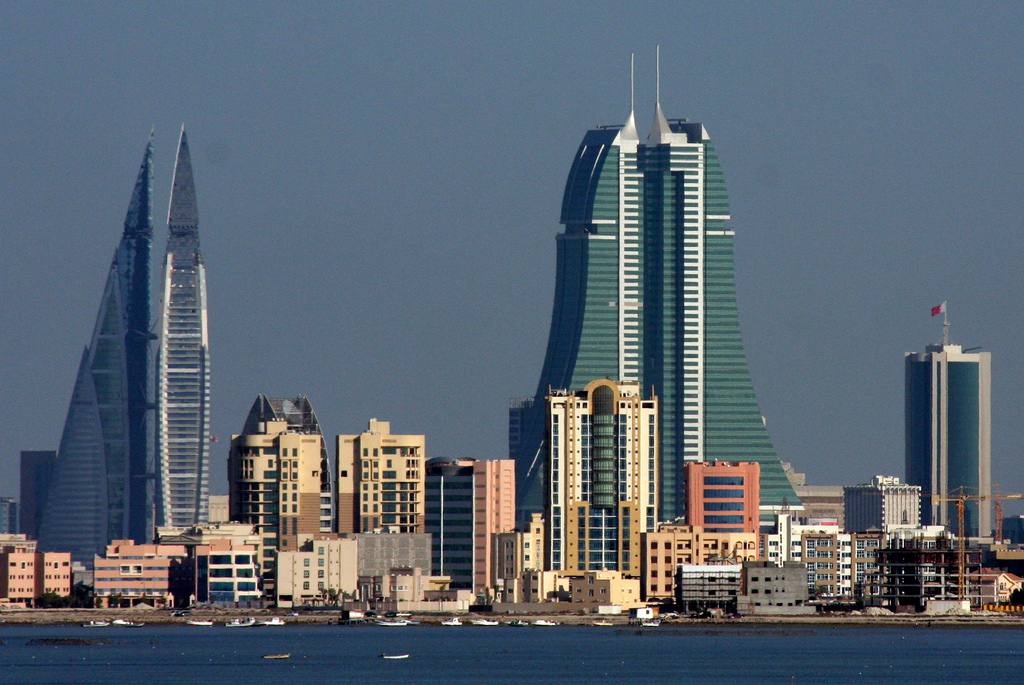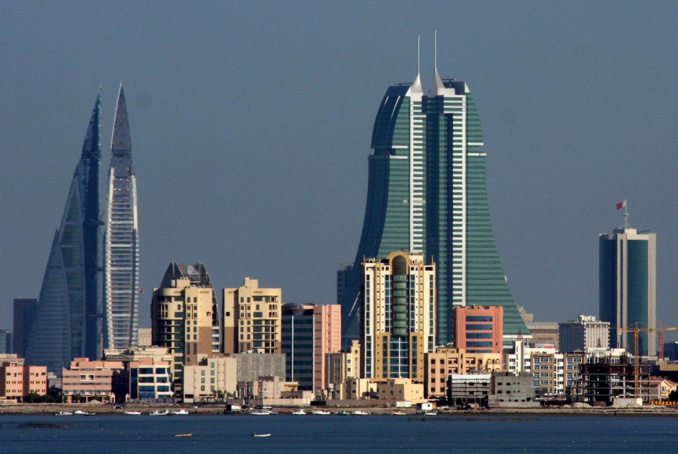Bahrain is a tiny island nation in the Persian Gulf. Recently, a deposit, which contains at least 80 billion barrels of oil and 400 billion cubic meters of natural gas, was discovered at the western shore of this country. Such an assessment was given by independent auditors from DeGolyer and MacNaughton, as well as specialists from the oilfield service giant Halliburton.
The valuation of reserves is preliminary and is based on tests of one exploration well and seismic data. This year, Halliburton will drill two more exploratory wells to clarify parameters of the discovery. However, the leadership of Bahrain has already announced that production in the new marine fishery will begin in five years and will reach 200,000 barrels per day at its peak. Now the Middle East Kingdom produces about 50,000 barrels of oil a day, and the total reserves before this discovery were 124.6 million barrels (world daily production is estimated at 85 million barrels).
Global media have already hinted that Bahrain's entry to the top ten of oil producers can radically change the situation in the energy market, affect the balance of supply and demand of hydrocarbon raw materials and lead to a drop in prices. In fact, such assumptions do not just look premature, but completely unrealistic.
To begin with, geological characteristics of the discovered deposit require special methods of development with the use of so-called secondary methods of increasing oil recovery. In other words, these are hard-to-extract reserves that can be compared to the glorified shale formations in North America. However, the situation is even more complicated in the case of Bahrain. Specialists of Wood Mackenzie Ltd have already warned that only a very small part of this oil will be extracted on the surface, and the cost of the produced barrel may be too high in order to make the project profitable.
The quality of the new Bahraini field can be compared to the Russian Bazhenov Suite - the oil-bearing horizons of Western Siberia, which can contain a colossal amount of oil. It's about 2 trillion barrels, but the geological properties of the rock in these horizons allow extracting no more than 2-3% of these reserves. Of course, the task for developers of the subsoil resources in the Persian Gulf is facilitated by availability of reliable infrastructure, climate and close transport routes, but geology remains geology, especially as the oil of the deposit belongs to heavy viscous grades.
In addition, there is currently no shortage of relatively cheap oil in the world, and so significant extraction costs are unnecessary. The new Bahrain project may have difficulties in competing with its neighbors in the region: Saudi Arabia, the United Arab Emirates, Kuwait, Iran and Iraq, as well as with oil exporters in other countries, including the United States.
source: forbes.com
The valuation of reserves is preliminary and is based on tests of one exploration well and seismic data. This year, Halliburton will drill two more exploratory wells to clarify parameters of the discovery. However, the leadership of Bahrain has already announced that production in the new marine fishery will begin in five years and will reach 200,000 barrels per day at its peak. Now the Middle East Kingdom produces about 50,000 barrels of oil a day, and the total reserves before this discovery were 124.6 million barrels (world daily production is estimated at 85 million barrels).
Global media have already hinted that Bahrain's entry to the top ten of oil producers can radically change the situation in the energy market, affect the balance of supply and demand of hydrocarbon raw materials and lead to a drop in prices. In fact, such assumptions do not just look premature, but completely unrealistic.
To begin with, geological characteristics of the discovered deposit require special methods of development with the use of so-called secondary methods of increasing oil recovery. In other words, these are hard-to-extract reserves that can be compared to the glorified shale formations in North America. However, the situation is even more complicated in the case of Bahrain. Specialists of Wood Mackenzie Ltd have already warned that only a very small part of this oil will be extracted on the surface, and the cost of the produced barrel may be too high in order to make the project profitable.
The quality of the new Bahraini field can be compared to the Russian Bazhenov Suite - the oil-bearing horizons of Western Siberia, which can contain a colossal amount of oil. It's about 2 trillion barrels, but the geological properties of the rock in these horizons allow extracting no more than 2-3% of these reserves. Of course, the task for developers of the subsoil resources in the Persian Gulf is facilitated by availability of reliable infrastructure, climate and close transport routes, but geology remains geology, especially as the oil of the deposit belongs to heavy viscous grades.
In addition, there is currently no shortage of relatively cheap oil in the world, and so significant extraction costs are unnecessary. The new Bahrain project may have difficulties in competing with its neighbors in the region: Saudi Arabia, the United Arab Emirates, Kuwait, Iran and Iraq, as well as with oil exporters in other countries, including the United States.
source: forbes.com



















